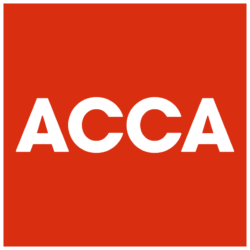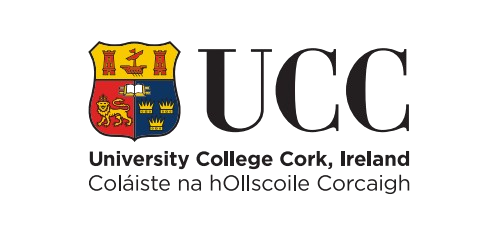Course overview
The objective of our MSc Finance (Corporate Finance) at UCC is to produce graduates who can contribute immediately to the corporate finance industry. As a participant in the course, you will focus on developing your analytical and professional skills, culminating in either a corporate finance project or a corporate internship.
Our course has been designed in conjunction with an industry course board to ensure it meets the corporate finance skills needs of employers. Upon completion of MSc Finance (Corporate Finance), you can expect to have excellent career prospects with business advisory, consultancy, corporate investment banking, and venture capital firms.
The quality of the programme is demonstrated by its winning the Postgraduate Course of the Year in Business, Finance & Management in 2017.
This programme has been accepted into the CFA Institute University Recognition Programme and the CAIA® Academic Partner Programme and carries ACCA exemptions.
- The CAIA academic partnership is granted to institutions that cover at least 60% of the entire CAIA curriculum as represented by the Core Knowledge Outline (CKO).
- ACCA recognises this MSc for accreditation. Upon graduation, students have exemptions from the following ACCA examinations: Accountant in Business (AB), Management Accounting (MA), Financial Accounting (FA), and depending on module selection Financial Management (FM).
Job outcomes
Careers in:
- regulation
- venture capital
- consultancy
Recognition

Study method
- In-class
- Blended
- Online
- Virtual
Duration study load
- 1 Year Full-time
Entry requirements
Applicants must normally have
- A second-class honours grade I in a primary honours degree (NFQ, Level 8) or equivalent in a business programme or
- The expectation of graduating with a second-class honours grade I in a primary honours degree (NFQ, Level 8) or equivalent in a business programme in the year of entry, or
- A second-class honours grade I in a primary honours degree (NFQ, Level 8) or equivalent in a cognate discipline with a quantitative element.
Applicants who achieve a second-class honours grade II in a primary honours degree (NFQ, Level 8), in either a business degree or a degree in a cognate discipline with a quantitative element, will be assessed on a case-by-case basis under Recognition of Prior Learning (RPL).
For Applicants with Qualifications Completed Outside of Ireland
Applicants must meet the required entry academic grade, equivalent to Irish requirements. For more information, please submit an enquiry.
International/Non-EU Applicants
For full details of the non-EU application procedure, please submit an enquiry.
- In UCC, we use the term programme and course interchangeably to describe what a person has registered to study in UCC and its constituent colleges, schools, and departments.
- Note that not all courses are open to international/non-EU applicants; please check the fact file above. For more information, please submit an enquiry to find out more.
English Language Requirements
Applicants who are non-native speakers of the English language must meet the university-approved English language requirements.
Professional recognition
Recognised by ACCA
Assessment
To meet the development objectives of this programme, the degree is assessed by a blend of formal examination and continuous assessment. A number of modules contain up to 30% continuous assessment.
The final element of the MSc programme is either a research project or a corporate internship. This represents one-third of the marks for the master’s programme.
Who's it for?
The objective of this MSc Finance (Corporate Finance) programme is to produce graduates who can contribute immediately to the corporate finance industry. There are many reasons to choose this unique course, including the following:
- It is a one-year course
- The course has been running since 2009 and has a strong alumni in Ireland and globally who understand the quality of the course
- You will gain excellent employment prospects on completion of the course
- The course is developed and delivered in conjunction with industry
- You will benefit from a deep corporate finance syllabus
- A business research skills module is included
- You will produce a Corporate Finance Research Project or gain experience on a Corporate Internship
- Throughout the programme, we will focus on enhancing your analytical skills and personal development
Subjects
The Professional Development module provides students with additional training in industry-relevant skills: this ranges from presentation skills to Excel training. There is a strong focus on teamwork, and several modules have elements with team projects/assessments.
In the third semester, students have the choice to complete either a corporate finance project or a corporate internship. For the internship opportunity, students have to go through a competitive recruitment process, including interviews with employers. In the project, students work under the supervision of an academic mentor, while the corporate internship option allows students to explore their career options to make informed career choices.
Part I consists of a combination of examinations and coursework in a set of specified taught modules to the value of 60 credits.
Part II consists of a Research Project or a Corporate Internship to the value of 30 credits. In total, students take 90 credits as follows:
The final element of the course takes place in the summer term. Students have the choice of completing an integrated research project or an internship.
- In the research project, you have the opportunity to work in a team made up of your classmates, under the supervision of an academic mentor, on a corporate finance issue. This project allows you to hone your analytical and professional skills.
- If you choose the internship option, you will learn to apply your knowledge of finance in a work context, allowing you to learn through practice and to develop your critical writing and thinking skills through using the corporate internship as a site of inquiry, research and reflection. Students will undertake an internship with a relevant company in an area appropriate to the programme. To secure an internship place, students go through a competitive recruitment process, including interviews with employers.
About University College Cork
University College Cork is ranked in the top 1.1% of universities in the world. It is Ireland’s leading institution for the delivery of research impact and the top Irish institution for highly cited researchers. We are the leading global university for sustainability and the Irish university with the highest level of industry collaboration.
The university was founded in 1845 as one of three Queen's Colleges located in Belfast, Cork, and Galway. It became University College, Cork, under the Irish Universities Act 1908. The Universities Act 1997 renamed the university as National University of Ireland, Cork, and a Ministerial Order of 1998 renamed the university as University College Cork – National University of Ireland, Cork, though it continues to be almost universally known as University College Cork.
